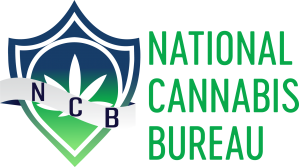The Switzerland government announced on June 22 that it will lift the ban on medical cannabis, as according to an amendment to the Swiss Narcotics Act that parliament approved in March 2021. According to Agence France Presse, the government “intends to facilitate access to cannabis for medical use for patients.”
“The decision to use a cannabis-based medicine for therapeutic purposes will rest with the doctor, in consultation with the patient,” the government said of the amendment. As of August 1, patients will no longer be required to obtain permission from the Federal Office of Public Health (FOPH). However, adult-use cannabis sale and consumption will still remain illegal.
In Switzerland, medical cannabis is only allowed for patients with a doctor’s approval, or previously required approval from the FOPH. However, medical cannabis is still only allowed if the medicine contains less than 1% THC, and is licensed. Currently, only Sativex is approved for prescription to patients.
The country’s federal public law institution, Swissmedic, which is responsible for both “authorization and supervision of therapeutic products” including cocaine, methadone, and morphine could eventually be directed to manage the cannabis industry going forward.
Back in 2019, FOPH issued approximately 3,000 authorizations for cannabis patients suffering from a wide variety of medical conditions. However, the FOPH described this process as “tedious administrative procedures.” “Sick people must be able to access these medicines without excessive bureaucracy,” it stated.
In September 2021, the Switzerland government approved a recreational cannabis trial called “Zuri Can,” which is expected to begin this summer. There was one caveat, requiring that only “experienced users” should apply to participate, and this is verified by testing hair samples instead of urine or blood tests. The trial program will be held in Basel, Switzerland, and analyze results from 400 people who will be approved to buy recreational cannabis from specific pharmacies.
Also in June 2022, a new study conducted by the University of Geneva and EBP, a consulting firm, explored the benefits of full cannabis legalization. According to researcher’s findings, approximately 56 tons of cannabis is consumed every year in Switzerland. Based on this data, annual revenue for adult-use cannabis sales could collect up to $582 million Swiss francs (CHF). The industry could generate 0.06% of the country’s economy, which is roughly the same contribution as Appenzell Innerrhoden, the country’s smallest canton by population and area. Legal cannabis could also provide up to 4,400 full time jobs, in comparison to the country’s Swiss accident insurance, which has about 4,200 employees.
Ultimately, as seen in other countries, there are many benefits to establishing a regulatory framework for cannabis legalization. Study author and Research Associate at the Institute of Sociological Research of the University of Geneva Dr. Oliver Hoff explains that it’s time that Swiss cannabis laws received an update. “The simulation shows, that the current form of regulation produces [an] economically inefficient result,” Hoff said in a statement. “While artificially high profit margins enable illegal actors to generate generous profits, consumers suffer from inadequate transparency regarding products and quality. The healthcare system and preventative measures have a hard time accessing consumers with problematic consumption patterns and the state lacks access regarding regulatory, fiscal and public-health oriented initiatives.”
FOPH Head of Policy and Implementation, Adrian Gschwend, also provided a statement about the timing of this study. “The study comes precisely at the right time as the commission for social and healthcare issues of the national assembly has recently started a legislative proposal regarding the legalisation of cannabis,” Gschwend said. “The results show that both the current illicit market as well as a liberal commercial market inflicts costs on the public while individuals generate big profits. We thus need a well-regulated market that ensures both protection for children and adolescents as well as health protection measure.”
The post Switzerland to Lift Ban on Medical Cannabis appeared first on High Times.

